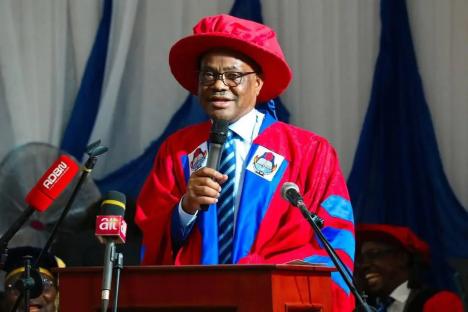The Nigeria Political Science Association, NPSA, has identified some key issues hindering democratic governance as the country marks 26 years of its Fourth Republic, which commenced in May 1999.
The association, in its verdict contained in a statement by the national president, Professor Hassan Saliu, declared: “Nigeria Democracy @26: Citizens Are Not Smiling.”;
According to the association, a critical examination of Nigeria’s democracy revealed that it has been fraught with challenges.
Professor Hassan argued that despite efforts made by successive governments to improve the lives of Nigerians through various policy initiatives, the reality on the ground suggests that the benefits of democracy have not been evenly distributed.
He listed several issues that have hindered its effectiveness, which include, among others, military hangovers that contributed to dictatorial tendencies being exhibited by the country’s democratic leaders.
The president also identified self-serving interests, sluggish policy implementation, over-reliance on neo-liberal economic principles, lack of progressive ideologies, and divisiveness, which have resulted in credibility issues with elections.
“Electoral processes have been marred by questions about their credibility and transparency, while many political parties lack internal democracy and fail to promote democratic values.
“Politicians often switch parties for personal gain rather than ideological reasons, with the political landscape dominated by one party, potentially stifling opposition and limiting choices,”; he added.
The association further noted that aside from debt accumulation, budgets often include questionable entries benefiting politicians at the expense of the general population, while the middle class has been squeezed, with many individuals struggling to make ends meet, exemplified by the neglect of university professors.
Expressing concern about the state of democracy in the country, the association declared that democracy has largely served the interests of the ruling elite, while the majority of citizens have not benefited significantly.
“To address these issues, it is essential to reorient the political system towards developmental politics prioritising citizens’ needs.
“Fundamental adjustments are necessary to ensure democracy delivers benefits to all Nigerians, not just a privileged few. The reality of democracy in Nigeria today is that it has not prioritised the people. This should not be so.”;








